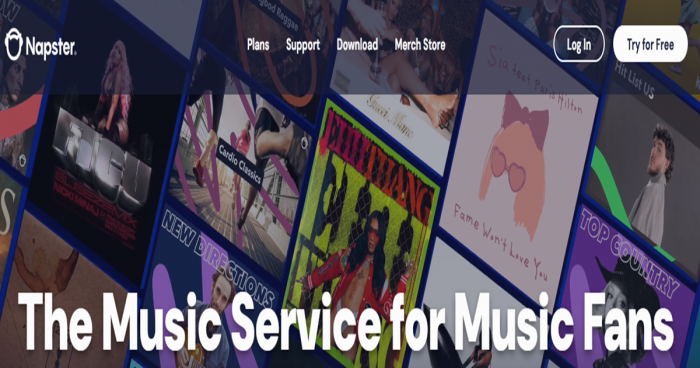Napster was not only an app for listening to music. It offered users in 1999 unlimited, free MP3 access, which they had never seen before. Millions could download music for free using peer-to-peer sharing.
But, the legal pressure from Metallica and the Recording Industry Association of America (RIAA) led Napster to close by 2001. But the way we view music had already changed by its legacy.

And what came next signaled the beginning of Napster's long, meandering transformation.
Napster changed after it was closed; it did not vanish. Roxio bought it and then joined it with Rhapsody. The Napster name was once more on the market by 2016 as an official streaming service.
It battled to be relevant in a market controlled by Apple Music, Spotify, and YouTube. Although Napster had history, it lacked momentum.
That changed in 2025 when a daring new contestant arrived contests.
Napster was bought in March 2025 by Infinite Reality, a business creating immersive digital surroundings, for $207 million. This, however, was not a nostalgia trip. Reinventing Napster for the metaverse age was a strategic decision.
The idea is to transform Napster into a social music platform where fans participate in virtual concerts, purchase digital merchandise, and engage with artists in 3D spaces.
This is not only a streaming improvement. This is an entire experience upgrade- one that fits perfectly with how today’s fans already consume and interact with music.
Which brings us to the next big question: why does the metaverse model actually make sense for music right now?
Fans who grew up with digital technology already know that music has more to offer than just sound. interaction, connectivity, and full immersion appeal to them.
Events on Roblox and Fortnite have shown that music experiences can really flourish in gamified surroundings.
Under former Roblox music executive CEO Jon Vlassopulos, Napster's pivot feels intentional rather than accidental.
Napster is designed this time, not disturbing.
This is an entire experience upgrade — and that vision becomes clearer when you look at how Napster is building the future of music spaces.
The new Napster is not attempting to mimic Spotify. It's turning into a music-first social hub where creativity, commerce, and community meet in one digital world.
Direct engagement resources come to artists. Fans have live events. Everyone has something above and beyond a playlist alone.
Napster could also change what "listening to music" implies in the next decade by means of this process.
But to understand where it's going, we need to remember where it started — and how far it’s come.
Napster began breaking the rules. It's now developing fresh connections. Supported by the technology and vision of Infinite Reality, this is a second act with intent rather than one of piracy or failure.
Napster is setting the pace for the future of music from metaverse platforms to MP3s.
Be the first to post comment!